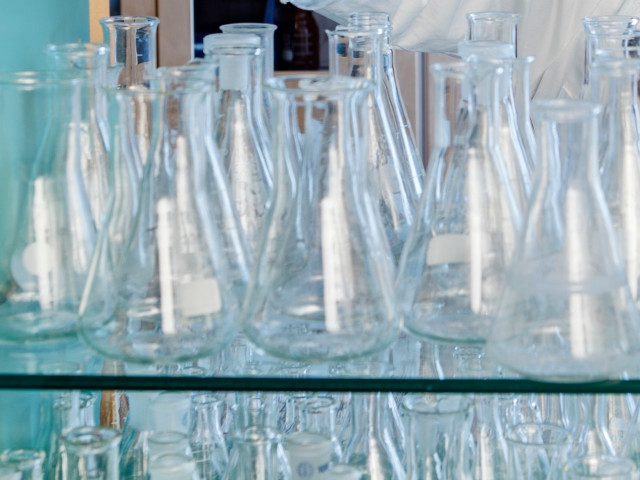Fundamental statistical parameters such as probability, normal distribution, standard deviation, variance and confidence interval will be presented. Based on this foundation regression methodology and analysis of variance will be treated. Further, spectroscopic and chromatographic techniques for chemical analysis will be presented both in lecture form and during laboratory experiments. Since practically all analytical methods are indirect time will be devoted to teaching the students the basics of calibration. Laboratory experiments and computer exercises will be closely linked to the statistical parts by application of the statistical methods on the analytical results obtained. Methods for optimising the usefulness of experimental results by careful design of the experiments will be treated. During later years aspects such as validation of analytical measurements and traceability of the results obtained have come into focus. No results of measurements are valid if their uncertainty is unknown. This very important area will be briefly summarised. During laboratory exercises an Excel - environment will be used for handling of the data obtained and for extraction of information. A computer based training material will be used as an aid in teaching statistical methodology.
KD1110 Chemical Measuring Techniques 7.5 credits

The course, Chemical Measuring Techniques, connects mathematical statistics with analytical chemistry.
The aim of the course is to introduce general aspects of measurements, and to integrate statistical methods of data handling with the presentation of chemical analysis techniques.
Content and learning outcomes
Course contents
Intended learning outcomes
When you have passed the course you will be able to:
• Plan and evaluate experiments with statistical methods.
• Describe and perform some fundamental chemical analysis methods.
• Choose and apply suitable calibrating models, and use statistical tests to handle the measuring data from varying chemical analyses.
• You will also be able to evaluate uncertainty and estimate which parameters contribute to the analytical method’s uncertainty.
• You will also, by getting a fundamental knowledge of the most important analytical techniques that are used today, be able to assess which method is suitable for a given analytical problem and which disturbances that can be expected.
• You will evaluate the usefulness and limitations of different measurement techniques.
Literature and preparations
Specific prerequisites
Recommended prerequisites
Two years of study at the School of Chemistry and Chemical Engineering, KTH, or corresponding knowledge.
Equipment
Literature
1. D.C. Harris, Quantitative Chemical Analysis
2. Utdelat material.
Examination and completion
If the course is discontinued, students may request to be examined during the following two academic years.
Grading scale
Examination
- LAB1 - Laboratory Work, 3.0 credits, grading scale: P, F
- TEN1 - Examination, 4.5 credits, grading scale: A, B, C, D, E, FX, F
Based on recommendation from KTH’s coordinator for disabilities, the examiner will decide how to adapt an examination for students with documented disability.
The examiner may apply another examination format when re-examining individual students.
Other requirements for final grade
1. Written exam, 4,5 credits.
2. Written laboratory reports, 3 credits.
Opportunity to complete the requirements via supplementary examination
Opportunity to raise an approved grade via renewed examination
Examiner
Ethical approach
- All members of a group are responsible for the group's work.
- In any assessment, every student shall honestly disclose any help received and sources used.
- In an oral assessment, every student shall be able to present and answer questions about the entire assignment and solution.
Further information
Course room in Canvas
Offered by
Main field of study
Education cycle
Add-on studies
Contact
Supplementary information
The course KD1110 will be replaced by the course KD1190.